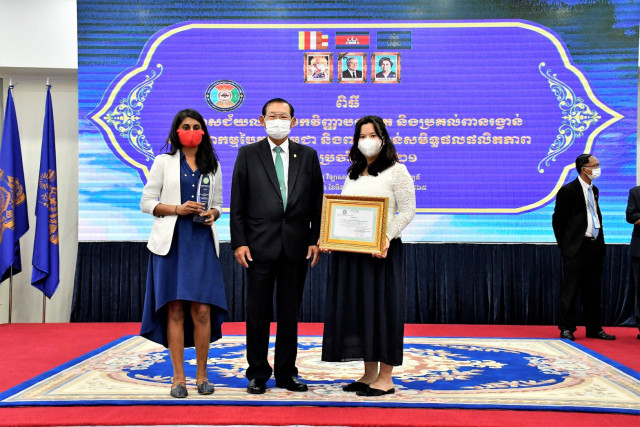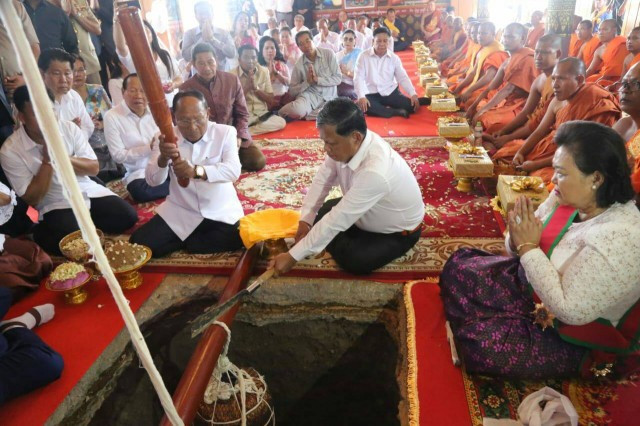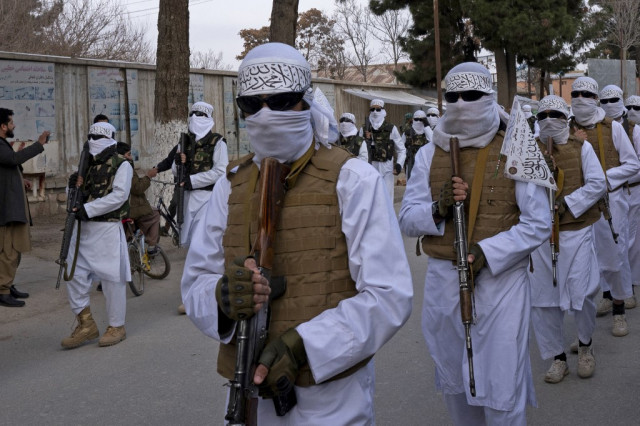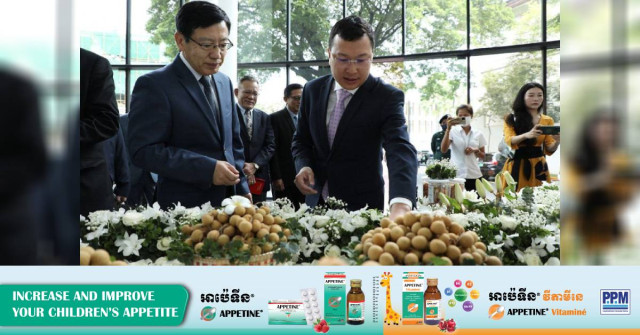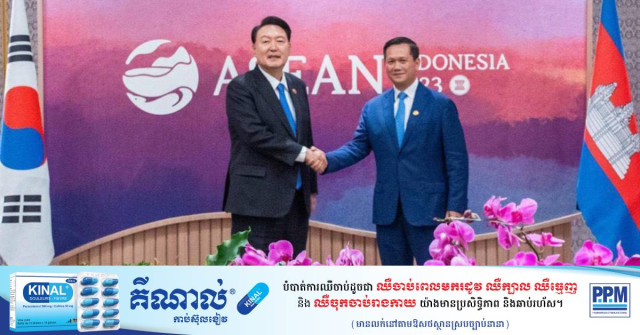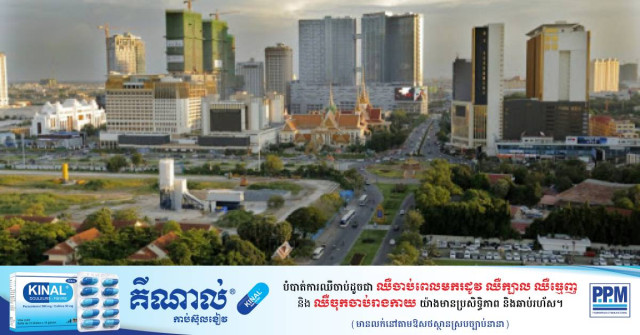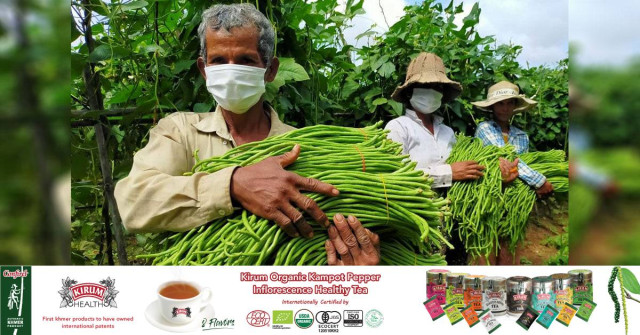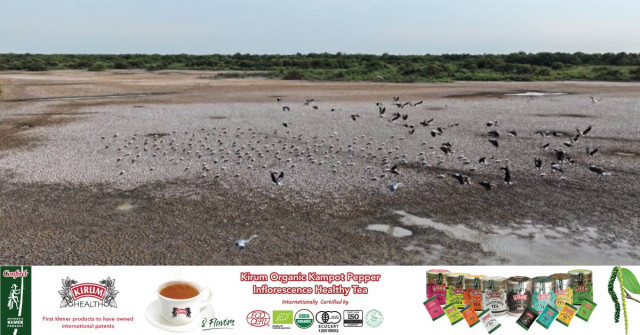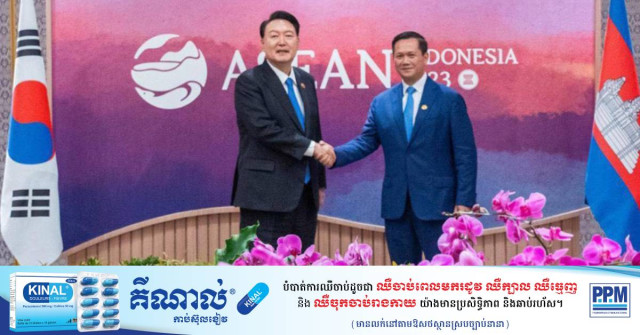Exploring Freedom of the Press in Cambodia
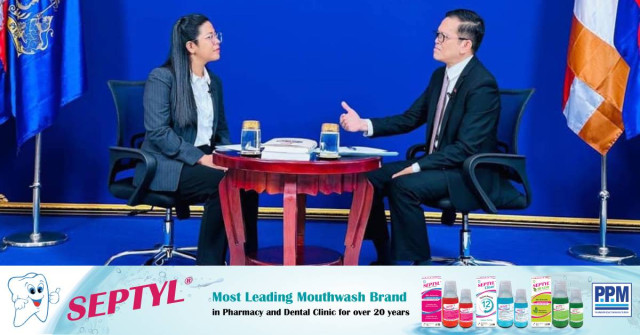
- By Nhek Sreyleak
- May 6, 2024 10:00 AM
PHNOM PENH— Freedom of the press in Cambodia has been a topic of concern. During a recent interview, Pen Bona, leader of the government's Spokesperson Unit, addressed the issue, emphasizing the importance of expressing freedom without affecting other people’s rights. He described this as “limited freedom of expression,” adding that everyone should know about this and that the press should inform the public of this.
Nhek Sreyleak: May 3 is World Press Freedom Day and there was a meeting between Prime Minister Hun Manet and journalists to mark this. What does this day mean to you?
Pen Bona: Freedom of the press is very important throughout the whole world if we talk about it as a whole. In Cambodia in particular, the government values freedom of the press because of what? Because people today need information, everyone in every field needs news. We can see that, without news, it is like no food, no water, and no air to breathe.
This is why we consider the press important, especially press freedom. For this reason, Cambodia’s government protects and grants all rights and freedoms. We see that the press in Cambodia has rapidly grown. It was never like this in the past. Now, the government has full press freedom that the people have enjoyed because it has given them rights, freedoms, and protections. And the government is working to ensure its quality for people.
Nhek Sreyleak: As you mentioned, news is like food, but today it is still heard that restrictions on press freedom exist in Cambodia. As a spokesperson and a former journalist, what do you think and how do you respond to this?
Pen Bona: Exactly. We hear that word from some civil society organizations, from some foreign organizations, and from opposition politicians who often say that Cambodia has restrictions on press freedom, freedom of expression, and so on. But I would like to inform you that they measure this based on what they see in legal measurement, which is why courts or the authorities take action against those who violate the law and those who violate the moral code and affect the rights of others.
They always considered these restrictions and persecutions, but they did not see why all these measures were in place. All such measures are taken within the legal framework, a framework of respect for the rights of others, and a framework of moral expression. If there is a violation, there is legal action.
Now we look at Cambodia, we look at the freedom in the news, and on social media. It is overflowing freedom until it has shown all kinds of insults. Why? Because we keep crossing the line. On the other hand, our press is in all forms: traditional media, radio, television and newspapers.
Newspapers (companies) are now facing some difficulties because they cannot keep up with the pressure of financial problems. And digital media is growing so much and so rich , and people are getting so much information that sometimes they feel like they are bored; they don't know which one (news outlet) to believe. This is the actual situation in Cambodia.
Therefore, any claim of how Cambodia restricts freedom of the press and freedom of expression is an opinion-based assessment that has not been thoroughly studied and does not understand the reality of what is happening.
They take some small points, and those small points are not studied in detail to explain why this thing happened in the first place. They did not study; they only knew how to accuse the government of persecution. So, this is something that we cannot accept because it does not reflect the facts.
Nhek Sreyleak: Does that mean that, in Cambodia, we have no restriction on press freedom?
Pen Bona: We can say that there is absolutely no issue as long as they use freedom within the bounds of the law, in respect of the rights of others, and with morals. People, politicians and activists can use this freedom. Do not overuse it.
Nhek Sreyleak: Recently, I heard you mentioned the limits of freedom of expression. What do you want to emphasize about the limits of freedom of expression?
Pen Bona: This is a very important point. Freedom of expression is a freedom that exists in both the international legal system and our nation's constitution, the national laws. Since they believe that a person’s personal freedom is essential and should exist in any society, especially a democratic one.
However, in the Cambodian Constitution, the International Covenant on Civil and Political Rights, and the Universal Declaration of Human Rights, there are clear boundaries. I will give an example of what Article 19(3) of the International Covenant on Civil and Political Rights is about.
It is stated that the exercise of the rights is contained in paragraph 2 of the article. Article 2 lists one, two, and three rights. However, below them, special duties and responsibilities are required, so the exercise of these rights may be subject to certain restrictions imposed by law.
For what? First of all, to protect and respect the rights of others. Second, to protect national security, public order, health, and public morality.
Now, if we look at Article 29.2 of the Universal Declaration of Human Rights, it states that the exercise of the rights of all persons shall be within the limits set by law in order to ensure the recognition of respect for the rights and freedoms of others in order to meet their legitimate needs, morality, public order, and general well-being in a democratic society.
You see, this is not Cambodia's law, it is a declaration of human rights that is practiced around the world. And in Cambodia, we start from this spirit and we take it further. As Article 41 of the constitution clearly states, Cambodian citizens have the right and freedom of expression, the right and freedom of assembly, and the right to freedom of the press. However, no one may use these rights in a way that harms the honor and dignity of others, the good traditions of society, national security, public order, etc.
And freedom of the press is defined by this law, which is the Constitution of Cambodia.
And I'm sorry that some of our civil society organizations who work as human rights defenders, liberators of all kinds of democracy, have never mentioned that. They don’t talk about that, so some of our people do not know. Then, those who are in polititics and social activists use their rights to violate the law and violate the rights of others, which means they cross the line, and [that is why] the law takes legal action.
This is the point at which I want to explain how freedom is limited. What originally sets it is the law, the same at all national and international [levels]. And from now on, I have to talk about this more often. And the press: Thank you and please help spread the word so that our people understand.
Nhek Sreyleak: What if some people think that, if the expression is within the limits or is bound by law, is it an example of restriction of freedom of expression or not?
Pen Bona: That is why some of the civil society organizations always raise this [point] for exploitation…opposition politicians also exploit this. In fact, freedom is set from the beginning because, if there is no law and no respect for each other's rights, people in this world may harm each other down to the ground. These reasons lead to the belief that freedom of individuals must have limits and must be restricted. And you can use your freedom only within the framework of the law.
And there is nothing difficult, we just respect the law, and the rights of others, we just need to express our opinions ethically, and why can’t we do it. That is the important point that I want all organizations and all people to understand that problem.
Nhek Sreyleak: Would you clarify a little more. When you mean that the Cambodian people have freedom of expression, freedom of the press, and freedom of assembly, but this expression doesn’t harm others?
Pen Bona: Yes, of course. Now we have everything and there is a constitution that gives freedom to all citizens, freedom of the press. We have thousands of newspaper agents, we have thousands of civil society organizations, and trade unions have registered. What we are left with in Cambodia is not a lack of rights and freedoms. But the big problem in Cambodia is the misuse of freedom, the violation of the law and the rights of others, and the lack of ethics.
Nhek Sreyleak: To express their opinions ethically, as mentioned above, what points should they follow?
Pen Bona: To summarize, I want the essential three points, such as following the laws. Every country in the world has laws. No matter how developed or how much freedom that country has, there are laws. If there is no law, they cannot manage the country.
Second, respecting the rights of others means that, no matter what you express, do not harm others. If we defame them, accuse them without evidence, and affect other’s honor and dignity without evidence, it is wrong. They will react by suing us legally.
Third, expression with morality. Who does not love morality, who does not want to respect the law, who does not want to make the country orderly and respect each other with dignity?
Nhek Sreyleak: From your viewpoint, have Cambodian people adhered to these three points yet, and/or at what level?
Pen Bona: Not yet. As I said earlier, we have all kinds of rights and freedoms, but we still have one problem: the people. In my view, there are not many people. But the so-called politicians, political activists, social activists, and civil society: I don’t think so because they do not understand this. They are often explorative; they want to do whatever they want.
They want to protect their actions but never teach themselves, people, politicians, or social activists to be responsible, respect the law, or respect others. What they want is that everything they express or do is okay and that it is their freedom. Until then, their expression harms others; others sue them through legal channels, and the law takes action. Then, they accuse Cambodia of restricting freedom.
Conducted in Khmer for Thmey Thmey, the interview was translated by Chhuon Kongieng for Cambodianess.








